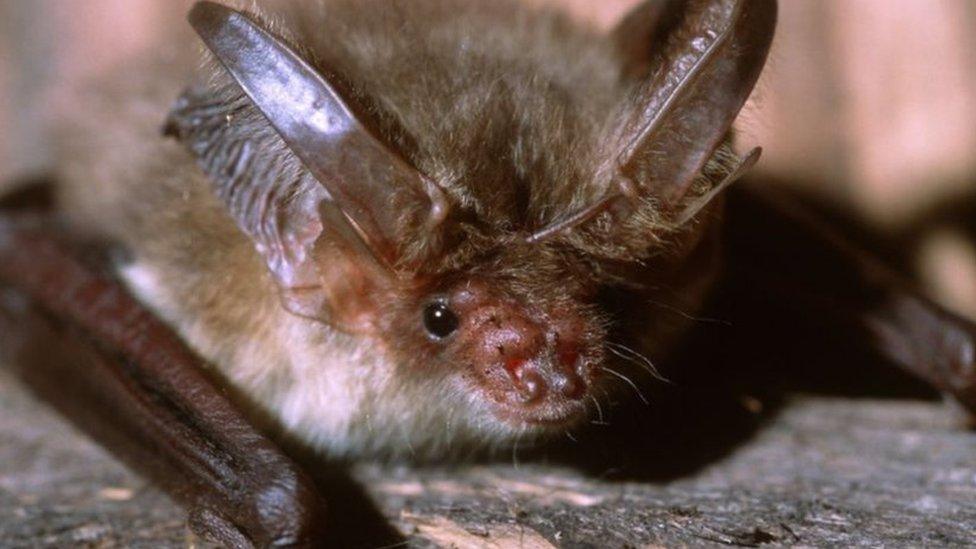Formby beach: Plans to transform sand dunes to help wildlife
- Published
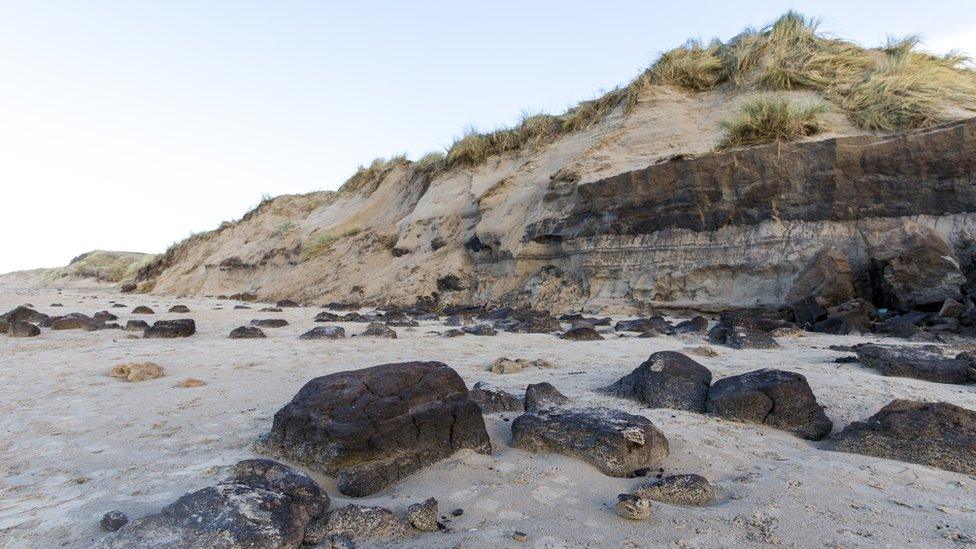
Thousands of tonnes of tobacco were dumped at Formby each year for almost two decades
Sand dunes are being restored to help wildlife including rare natterjack toads, the National Trust has said.
The "tobacco cliffs" at Formby, Merseyside, were once used for dumping tobacco waste between the 1950s and 1970s by the British Nicotine Company, which had a plant nearby.
The trust plans to transform the site to help wildlife thrive, which includes 12 breeding pools for the rare toads.
Isabelle Spall, from the trust, hopes the plans will "offer them a lifeline".
She said the area was one of the last strongholds for the toads, so it was crucial to link up habitats and boost their chances of survival.
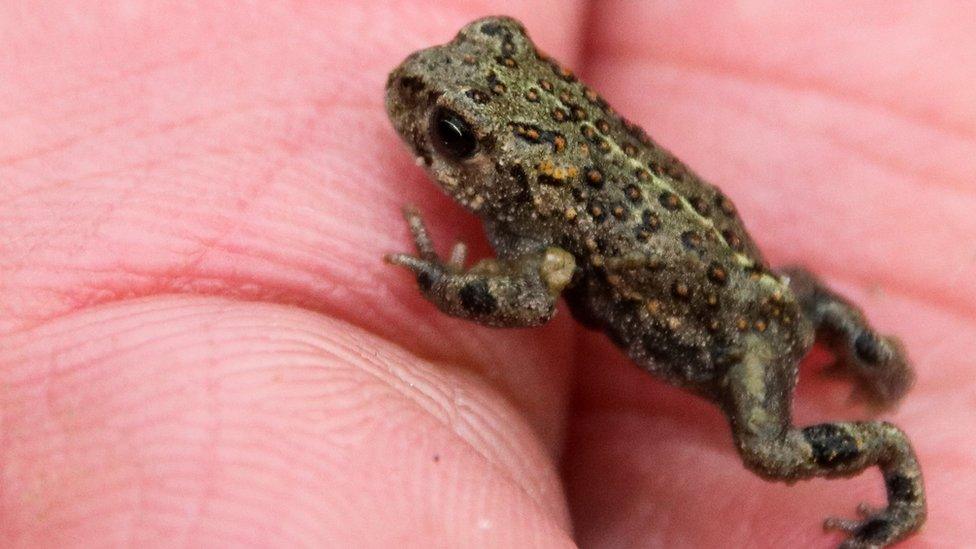
Natterjack toads have seen an estimated 75% of their breeding sites vanish since the start of the 20th Century
It is also hoped the work will help wildlife including sand lizards, which bury their eggs in the sand, and the rare northern tiger beetle, which is only found in Merseyside and Cumbria.
"Thousands of tonnes of tobacco were deposited at Formby each year for almost two decades, and while the waste itself isn't toxic, the sheer quantity inevitably means it is going to have a dramatic impact on the ecology and the structure of any landscape," Ms Spall added.
"Dunes should look like sandy hills, with rolling undulations - but this area is completely flat and covered in nettles and thistles.
"It effectively creates a barrier that prevents toads and lizards from being able to move across the site."
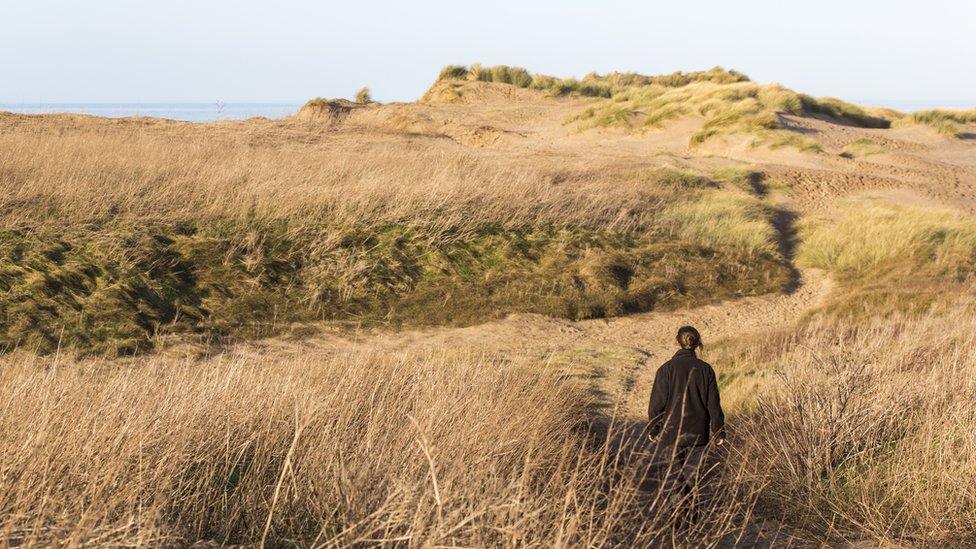
The sand dunes are currently covered with nettles that thrive on the waste and leave little space for coastal plants and creatures
The restoration project involves excavating two large V-shaped wedges from the dunes with diggers, which will allow sand blown from the beach to be pushed through the gaps and build up on top of the tobacco waste.
The work is part of the UK-wide £10m "Dynamic Dunescapes" project funded by National Lottery Heritage Fund and EU Life Programme, which is based on the idea that sand dunes that move and change are better for nature than stable, static ones.
The public are also being urged to play their part by not paddling in the dune pools or letting dogs go in them, instead paddling in the sea and carrying water for pets.

Why not follow BBC North West on Facebook, external, Twitter, external and Instagram, external? You can also send story ideas to northwest.newsonline@bbc.co.uk
Related topics
- Published8 December 2021
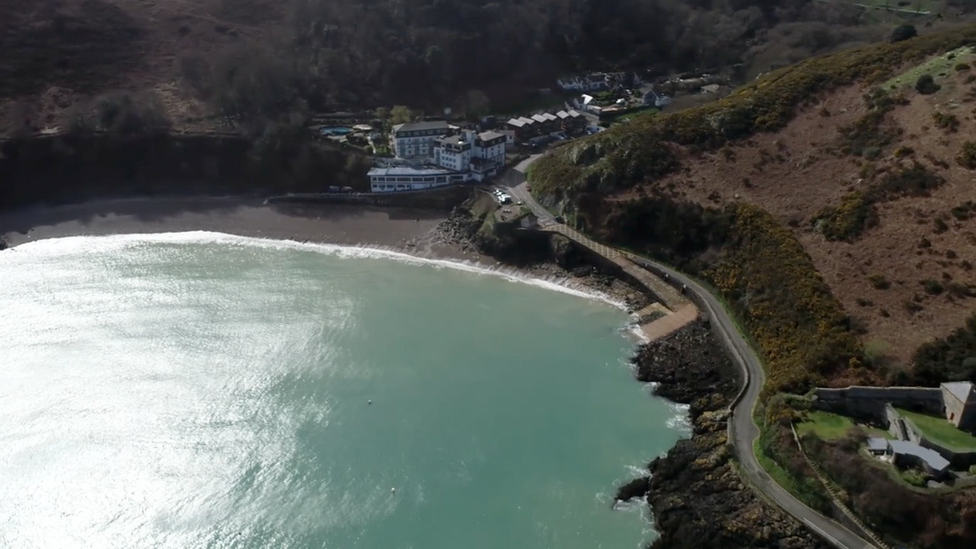
- Published24 November 2021

- Published19 November 2021

- Published7 October 2021
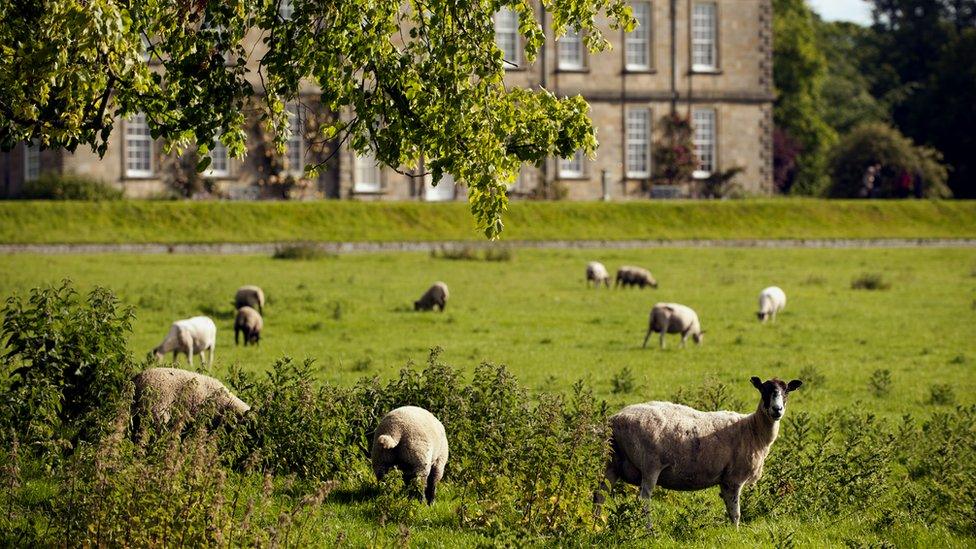
- Published12 August 2021
